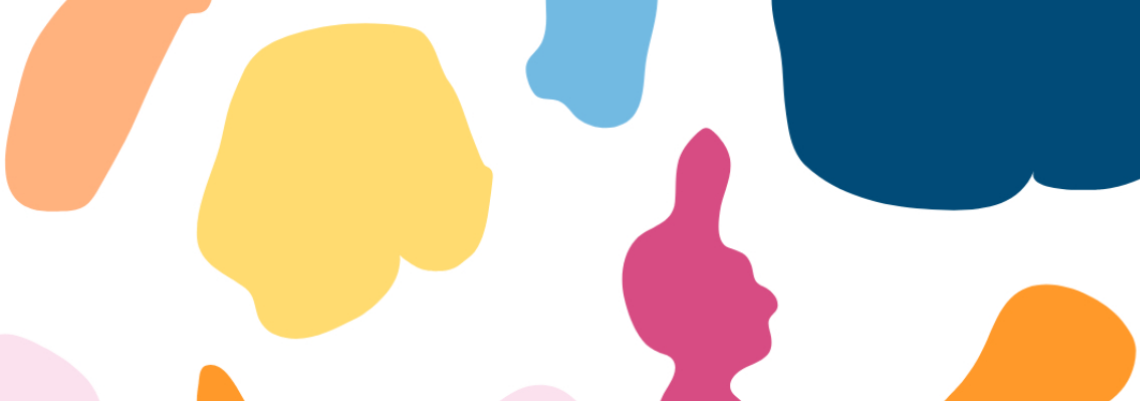
Why should we talk to young people about relationships and sex? What happens if we don’t? What does truly inclusive relationship and sex education look like?
In this guide, we explore the answers to these questions. We set a standard for quality relationship and sex education that represents and celebrates a plethora of different identites, abilities, sexualities, bodies and experiences.
This guide is a collaboration between sex-ed social enterprise, Split Banana, and disability awareness charity, Enhance the UK.
How to talk about relationships and sex in an open and inclusive way
Why should we talk to young people about relationships and sex?
As a society, we don’t have the best track record for Relationship and Sex education (RSE). Schools still often rely on biology lessons with graphic imagery of genital warts, or a one-off sex-ed session involving a condom and a banana. Additionally, the sex-ed that is taught often doesn’t speak to the experiences of marginalised groups, like physically disabled people.
Further, parents, guardians and carers may feel uncomfortable taking on the role of sex educator, meaning that often the topic is avoided completely. Less than half of young people rated the sex-ed from their parents, guardians and carers as ‘good’.
Honest conversations need to be had, to support our young people to be healthy and happy. We’re here to help with that.
Consequences of not receiving good RSE
Both silence and misinformation around topics within RSE can have huge consequences on a young persons’ life. Mainly fostering shame and embarrassment. This, in turn, leaves people more vulnerable to compromised sexual health, exploitation, abuse and mental health challenges.
By failing to explore RSE topics in an open and honest way, we create a vacuum which people try to fill by themselves. This leads them to uncritically ingest information about what sex and relationships should look like from their peers, pop culture and porn. This can result in unrealistic expectations, confusion and problematic behaviours and attitudes.
When we don’t educate young people about different bodies, identities and how to have positive relationships, we fail to create empathy and awareness, which can lead to discrimination and prejudice.
What is ‘good’ relationship and sex education?
Good sex-ed is holistic
The new government guidelines for what should be included in RSE can be found here. In 2019, the curriculum finally had its first update in 20 years, and now includes guidance on online safety, and a focus on mental wellbeing. We think the guidelines offer a good foundation of RSE, but can be pushed further, to ensure that every topic, and every person, is being included in the conversation.
At Split Banana, the foundational blocks that we teach are:
- Positive relationships with oneself
- Consent
- Gender
- Orientations
- Sex + Intimacy
- Body image
- Online safety
- Pleasure
- Healthy relationships
- Unhealthy relationships
This is the content that is needed to provide young people with the tools to keep themselves safe and happy.
Good sex-ed is inclusive
Crucially, a good RSE is one which seeks to be aware, respectful and inclusive of a variety of bodies, identities, experiences and beliefs.
This is where the government guidelines continue to be lacking. In fact, RSE guidelines have a long history of being exclusionary; by only teaching about relationships and sex from a non-disabled, heteronormative, white perspective.
Or by only encouraging teachers to ‘represent other perspectives’ when they knowingly have a child with certain requirements or life experience in their class.
This approach is inadequate for two reasons:
It assumes we know which life experiences are in the room. But we don’t. Impairments aren’t always visible. Neither is gender identity, orientation or trauma.
It suggests our life experiences are pre-ordained. Just because we don’t have a physical impairment at 15 doesn’t mean we will never have one. Additionally, it doesn’t mean that we won’t be in a sexual relationship with someone who does have one at some point in our lives. Similarly, just because we identify and present as one gender, this doesn’t mean that our gender will stay the same for the rest of our lives, or that someone we love might go through a transition.
An inclusive RSE is one that paves the way for everybody to have safe and positive experiences throughout their lives: it builds empathy, awareness and validation of multiple life experiences.
About us:
We’re Split Banana – a social enterprise which delivers relevant and inclusive relationship and sex education using arts-based learning. We do this in two ways: by delivering directly to young people and training educators in schools and community spaces, and through initiating community art projects.
We’re working with Enhance the UK’s Undressing Disability campaign to create resources dedicated to supporting disabled young people, and those who care for disabled young people: parents, guardians and professionals. We’re encouraging everyone to have open and honest conversations about relationships and sex. We have experience delivering to young people of all ages, and are using our knowledge and practice, along with Enhance the UK’s expertise, to create inclusive resources.
If you’d like us to deliver our creative sessions to young people within your organisation, or train you to do so yourself, get in touch on hello@splitbanana.co.uk.
We can create training and resources tailored to a variety of different settings.
